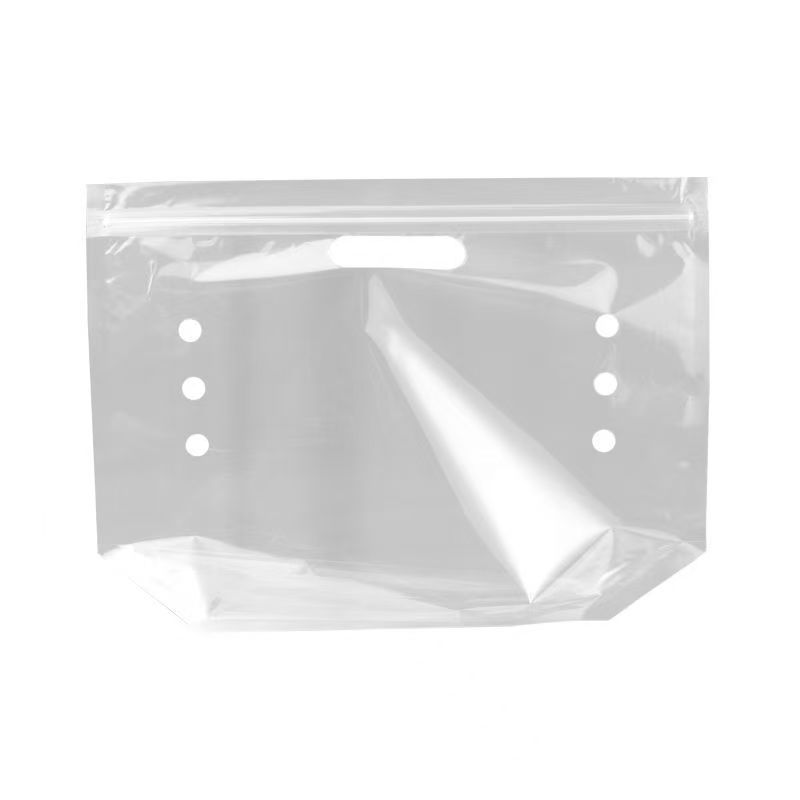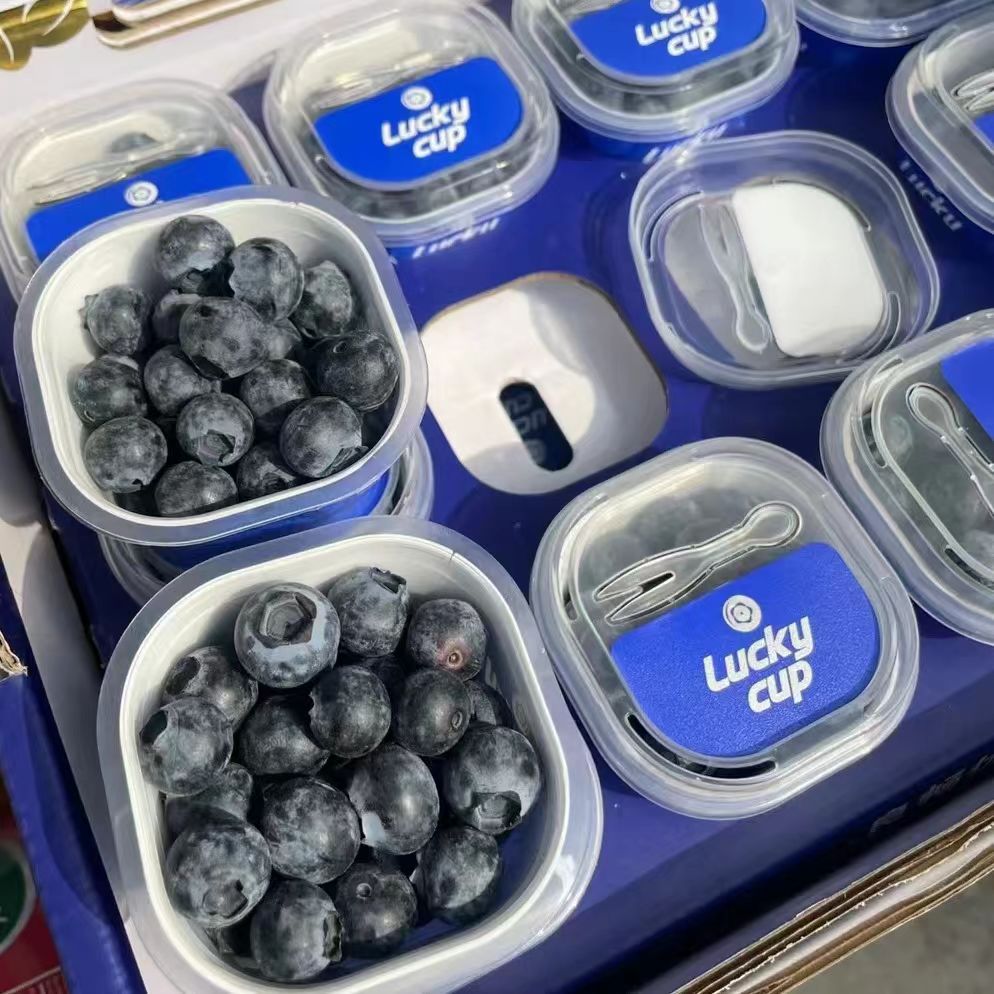As global attention turns toward sustainability, the packaging industry faces mounting pressure to move away from conventional plastics. One of the most promising solutions today is biodegradable material for bags — an innovation that redefines how we protect and present our products. For fruit packaging in particular, choosing biodegradable materials means more than going green; it means offering freshness, safety, and environmental responsibility all in one.
YITO, a leading manufacturer of sustainable packaging, is pioneering this transformation through its line of biodegradable fruit packaging bags designed to meet both commercial and environmental needs.
What Does “Biodegradable Material for Bags” Really Mean?
The term biodegradable refers to materials that can be naturally broken down by microorganisms into elements such as water, carbon dioxide, and biomass over time.
Unlike conventional plastics — which can linger in landfills and oceans for centuries — biodegradable materials are designed to return harmlessly to nature.
However, not all biodegradable materials are equal. Some require specific industrial composting conditions to decompose efficiently, while others can break down in home-compost environments. Understanding this distinction is crucial for both manufacturers and consumers aiming for truly sustainable packaging solutions.
Common Materials Used in Biodegradable Bags
Typical biodegradable materials for bags include PLA (Polylactic Acid) derived from corn starch, PHA (Polyhydroxyalkanoates) made by bacterial fermentation, cellulose-based films, and starch blends from plants such as cassava or potatoes. These plant-based alternatives not only reduce dependence on fossil fuels but also lower greenhouse gas emissions across their lifecycle.
In fruit packaging applications, PLA film is particularly valued for its high transparency, waterproof properties, and breathability — features that preserve the freshness and appearance of delicate fruits while maintaining an eco-friendly footprint.
Certification and Authenticity
Not every product labeled “biodegradable” meets recognized standards. Genuine biodegradable bags should comply with certifications like EN 13432, ASTM D6400, or BPI (Biodegradable Products Institute). These certifications confirm that the material can degrade within a specific timeframe without leaving toxic residues — ensuring environmental integrity and consumer trust.
Why Biodegradable Material Matters for Fruit Packaging
Protecting the Fruit and the Planet
Fruit packaging serves two essential purposes: product protection and environmental stewardship. While traditional plastic bags offer durability, they also contribute to microplastic pollution and landfill overflow.
By contrast, biodegradable materials allow manufacturers and retailers to protect perishable fruits without compromising the planet.
Biodegradable films and bags can offer comparable strength, clarity, and moisture control, ensuring that fruits stay fresh throughout transportation and display. At the same time, once discarded, these bags can naturally break down — minimizing long-term waste accumulation.
Regulatory and Market Momentum
Governments worldwide are tightening regulations on single-use plastics, while consumers increasingly prefer eco-friendly brands. The use of biodegradable material for bags aligns perfectly with these shifts. Retailers and distributors adopting such materials demonstrate corporate responsibility and forward-thinking brand values — a key differentiator in today’s competitive market.

Waste Reduction and Responsible Disposal
Because fruit packaging is often single-use, choosing a biodegradable option significantly reduces environmental impact. Properly disposed of in composting facilities, these bags return to organic matter within months — not centuries — reducing strain on landfills and waste management systems.
YITO’s Biodegradable Fruit Packaging Bags
Material Composition and Product Features
YITO’s biodegradable fruit packaging bags are crafted from plant-based PLA , ensuring they are compostable, food-safe, and high-performing. The company’s range includes blueberry packaging punnets, rocket-shaped fruit tubes, and biodegradable cling films — each designed for both functionality and sustainability.
These bags feature crystal-clear transparency, allowing customers to see the product while maintaining freshness. They are oil- and water-resistant, equipped with zipper tops, hanger holes, and side gussets for convenient use and attractive shelf display.

How They Work in Real-World Applications
For delicate produce like berries, mushrooms, or grapes, YITO’s bags provide optimal ventilation through small perforations, preventing condensation while maintaining ideal moisture balance. The biodegradable cling film extends shelf life and protects fruit surfaces during transport, while still being safe for composting after use.
Why This Material Choice Matters
YITO’s packaging solutions exemplify how biodegradable materials for bags can deliver performance without pollution. The company’s continuous innovation in biopolymer technology ensures that each product strikes the right balance between functionality, sustainability, and visual appeal — a combination few conventional plastics can match.
How to Choose and Use Biodegradable Bags for Fruit Packaging
Selecting the Right Material for Your Product
Different fruits require different packaging conditions. For example, high-moisture fruits like strawberries benefit from breathable films, while citrus fruits may need stronger moisture barriers. YITO provides customizable options to ensure every fruit type receives the ideal protection while keeping sustainability intact.
When choosing a biodegradable material, consider properties such as tensile strength, oxygen permeability, printability, and composting conditions. YITO’s team offers expert guidance to help businesses make the right material selection for their needs.
Certifications and Proper Disposal
Ensure that your biodegradable packaging is certified and properly labeled with end-of-life instructions. Some biodegradable bags are home compostable, while others require industrial composting facilities. Educating consumers on correct disposal practices is essential to achieving the intended environmental benefits.
Storage and Handling Tips
Store biodegradable fruit bags in a cool, dry place, away from direct sunlight or heat sources, to maintain their structural integrity. Avoid exposure to moisture during storage, and use them within the recommended shelf life to ensure optimal performance. Following these simple practices helps preserve both product quality and sustainability.
The shift toward biodegradable material for bags marks a major step forward in sustainable packaging. For fruit producers, distributors, and retailers, it offers an opportunity to deliver freshness and environmental care simultaneously.
YITO is proud to lead this movement with its innovative range of biodegradable fruit packaging bags, combining eco-friendly materials, customizable designs, and certified performance. Whether you’re looking for wholesale or custom packaging solutions, YITO provides a one-stop service from design to delivery — helping brands grow greener without compromise.
Related Products
Post time: Nov-06-2025

